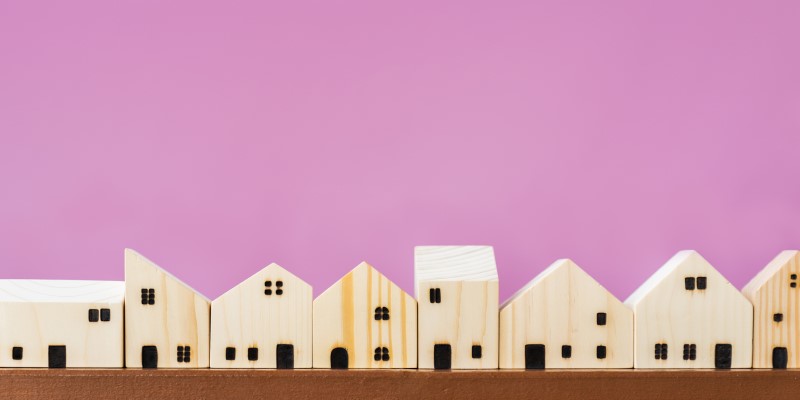Whether you've ever attempted it once or not, purchasing a home may be an extremely difficult task. It's tempting to keep renting or just choose the first property that fits within your budget.
Let's look at what you should think about prior to you buy, what to expect from the actual purchasing process, and some helpful pointers to make life simpler once you move onto your house in order to help you decode the whole thing and get maximum value out of your investment. Work through the difficult procedures involving getting got going, budgeting for a house, locating one, inspecting it, understanding the fundamentals of buying, and obtaining a mortgage by using this information and the remaining resources in our Ultimate Homebuying Guide.
Things to Think About Before Buying

Identifying your long-term objectives will be the initial task you need to do. Next, think about how owning a home fit into those goals. Some people just want to convert all of their spent rent dollars into mortgage payments so they can finally own equity, baby! Some relish the thought of being separate landlords and view homeownership as a symbol of their independence. And there's the matter of considering house ownership as an investment. Your journey to homeownership will be aided by focusing your aspirations. The inquiries to ask oneself are as follows:
1. What Kind of House Best Meets Your Requirements?
A classic single-family home, a townhome, a condominium, a cooperative, or a multi-family structure with two to four units are your alternatives when buying a residential property. Each choice offers advantages and disadvantages based on your objectives for homeownership.
You have to choose what kind of property will best support you in achieving those objectives. Choosing a fixer-upper can also help you save money on the initial asking price in any category, but it may need more time, money, and sweat equity than you anticipated to transform it into your ideal house.
2. What Particular Qualities Would Your Dream House Possess?
Although some wiggle room is acceptable on this list, you're probably making the largest purchase of your life, so you should make sure it fulfills your requirements and desires to the greatest extent feasible. Basic preferences like location and size should be at the top of your list, along with more specific preferences like kitchen layout and reliable appliances in the kitchen. When looking for a new home, real estate websites may be a useful resource for finding houses that meet your needs and preferences.
3. For what Size Mortgage are you Eligible?
It's critical to ascertain the exact amount a lender is prepared to offer you for your first house before you go shopping. Depending on variables like the amount of previous indebtedness you have, your regular monthly salary, and the length of time you've served at your present employment, lenders may determine that you're only qualified for a $200,000 mortgage, even if you believe you are capable of buying a $300,000 home. Prior to making a purchase offer on a house, be sure you are preapproved for financing. Sellers frequently won't even consider an offer without a mortgage preapproval in place.
What are Different Types of Homes?

There are numerous advantages to owning a typical single-family home, including privacy, space, and the ability to make as many improvements as you like (as long as they don't conflict with zoning laws, of course). However, they are not the only kind of homes available; they are not for everyone. Choices like a condominium or a factory-built portable house can be a better, less expensive choice, depending on your specific requirements and location. An overview of the many kinds of dwellings is provided here.
Flats
A condo might be a more cost-effective option than a single-family house. In a multistory building, condominiums may hardly be distinguished from rental flats; detached or side-by-side condos may even resemble townhouses. The unique feature of condominiums is what you hold. You become the exclusive owner of the interior walls and any contents within the condo when you purchase it. In addition, you share ownership of common areas and outdoor areas.
Like a homeowner’s organization for single-family houses, a condominium association manages the complex's shared ownership characteristics. You will be responsible for paying a monthly association fee as a condo owner for all outdoor maintenance, including landscaping and other upkeep.
Cooperatives
Purchasing a co-op, short for cooperative housing, makes you a stakeholder in the building or project as opposed to the owner of a single unit. The value of each individual unit and the co-op's financial structure will determine how much stock you own and how much it is worth.
Despite the common misconception that all cooperatives are primarily apartment or condo developments, cooperatives can refer to any kind of living arrangement, including a community of single-family homes. A co-op is basically a kind of tenancy rather than an instance of housing. If you invest in a co-op, be ready to comply with the regulations of the co-op board and pay maintenance costs.
Modular Residences
Modular homes are constructed in factories, just like prefabricated homes. However, much like single-family houses, they are built in accordance with state and municipal construction rules. Workers in the area assemble the components and set them on permanent underpinnings after the items are shipped to the home site.
According to the Association of Builders of Houses, modular buildings can save both time and cash because the majority of the work is done in a factory, undisturbed by bad weather or other on-site problems. Therefore, it could be less expensive than building a house in a conventional manner.
The Final Word!
This quick summary in this homebuying guide ought to assist you in starting the process of completing any information gaps you may have regarding property purchases. Recall that you will experience less stress and have a higher chance of obtaining the property of your dreams at a price within your budget if you familiarize yourself with the procedure in advance.




